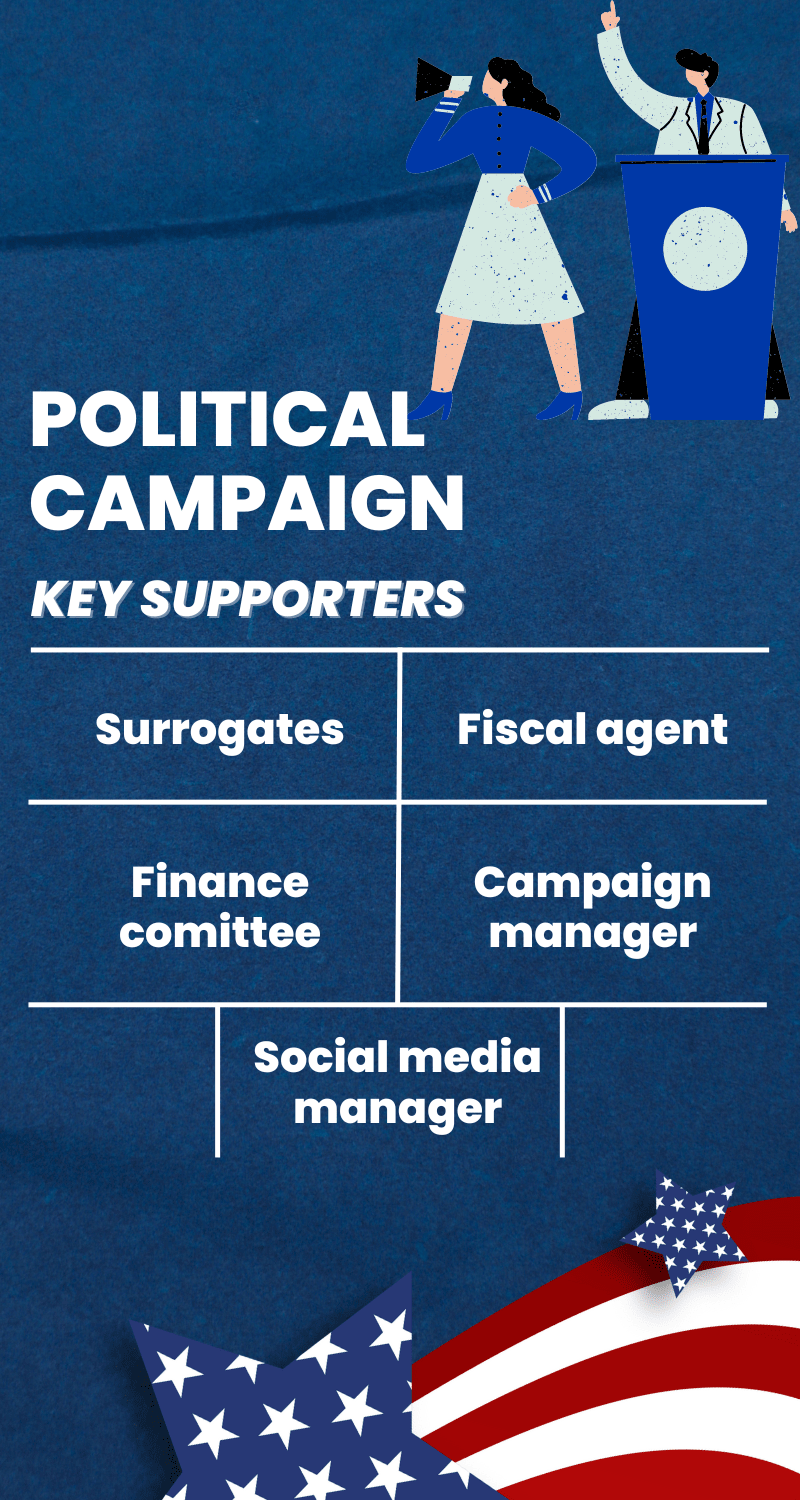
Breaking Down Political Campaign Key Supporters
Did you know about these important political campaign players?
Political campaigns can be long, complex, and extensive. That’s why many candidates have a team behind them, ensuring everything is running smoothly.
Here’s a brief breakdown of the critical political campaign supporters.

Surrogates
- Campaign surrogates act on behalf of the candidate running for political office. They frequently appear at public events that the candidate can’t attend and can offer more attention to voters, especially those in a specific demographic.
- Spouses are often campaign surrogates since crowds usually recognize their names and they can speak fairly for their partner.
- Campaign surrogates can also be people still serving in political office, allowing a candidate to use a politician's profile and rating to their benefit. For example, the President can act as a campaign surrogate for essential elections in their party.
Finance committee
- Running for office costs money. Political campaigns and organizations must execute their mission while continuing to operate effectively, which requires fundraising.
- A campaign finance committee helps candidates raise more money than what their immediate network can offer. Different campaigns require different teams. For a smaller campaign, some experts suggest having a business leader, a politician, someone with fundraising experience, a networker for a large non-profit, and a connected community member. A more extensive campaign, like a Congressional or Senate race, would require national and regional fundraising directors and many assistants, interns, and volunteers.
- Fundraising can be vital for winning elections, which is why a committee designated to it essential.
Social media manager
- Social media is a powerful tool when it comes to political campaigns — over 70% of the U.S. population has a social media account, and on average, Americans spend 3 minutes to 2 hours online daily. Since social media platforms are flooded with activity, a social media manager helps politicians establish an online presence.
- Social media managers specialize in fostering a platform for candidates to connect with voters. They have a deep understanding of the inner workings of online social spaces and use their expertise to manage the digital aspects of a campaign. These managers create advertisements and general posts to promote their candidate's campaign to the right people at the right time.
Fiscal agent
- Fiscal agents are organizations that accept and manage grant funds on behalf of the candidate. More specifically, they communicate with donors, disburse funds to the candidate's campaign, and maintain records of grant offers, acceptances, and disbursements.
Campaign manager
- The campaign manager oversees a team of people who handle the campaign's day-to-day operations. The manager usually runs the campaign beside the candidate.
- The campaign manager's tasks include managing the development of policy positions, voter outreach, advertising and marketing, project management, booking candidates at public events, maintaining a media presence, and raising money.
- The central, long-term goals of campaign managers include devising a campaign strategy, creating a campaign budget, hiring and training staff, and being the primary point of contact with the candidate. Additionally, managers maintain awareness of campaign finance laws and ensure all campaign workers adhere to them.
Did you know about these important political campaign players?